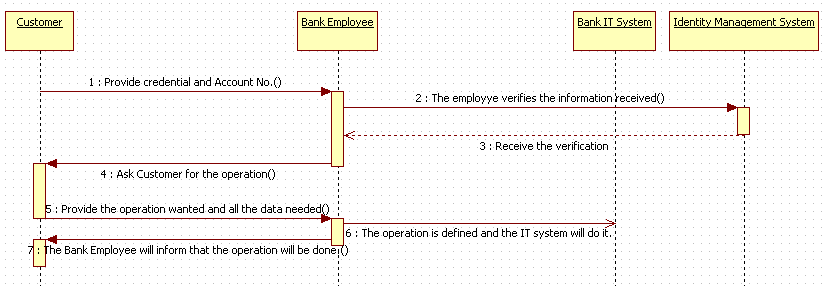#
Sequence Diagram
This tutorial explains to you what a UML Sequence Diagram is. Here are the concepts explanation and an example.
UML sequence diagrams are used to show how objects interact in a given situation.
A UML sequence diagram is a good way to visualize and validate various runtime scenarios.
UML sequence diagrams is a construct of a message sequence chart.
Here is a Sequence Diagrams:

In this UML Diagram you can see how a Bank Customer wants to transfer money abroad. You can see the steps 1 to 8.
Here are some information to retain:
Customer, Bank Employee, Bank IT System, Identity Management System are Objects. They demonstrate how an object will behave in the context of the system.
A synchronous message requires a response before the interaction can continue. It's usually drawn using a line with a solid arrowhead pointing from one object to another. A synchronous message we have in the steps # 1, 2, 4, 5, 7.
A reply (return) message is drawn with a dotted line and an open arrowhead pointing back to the original lifeline. A return message we have in the step #3.
Asynchronous messages don't need a reply for interaction to continue. Like synchronous messages, they are drawn with an arrow connecting two lifelines; however, the arrowhead is usually open. An asynchronous message we have in the steps #6. At the step #6, the IT System will proceed the task later.

